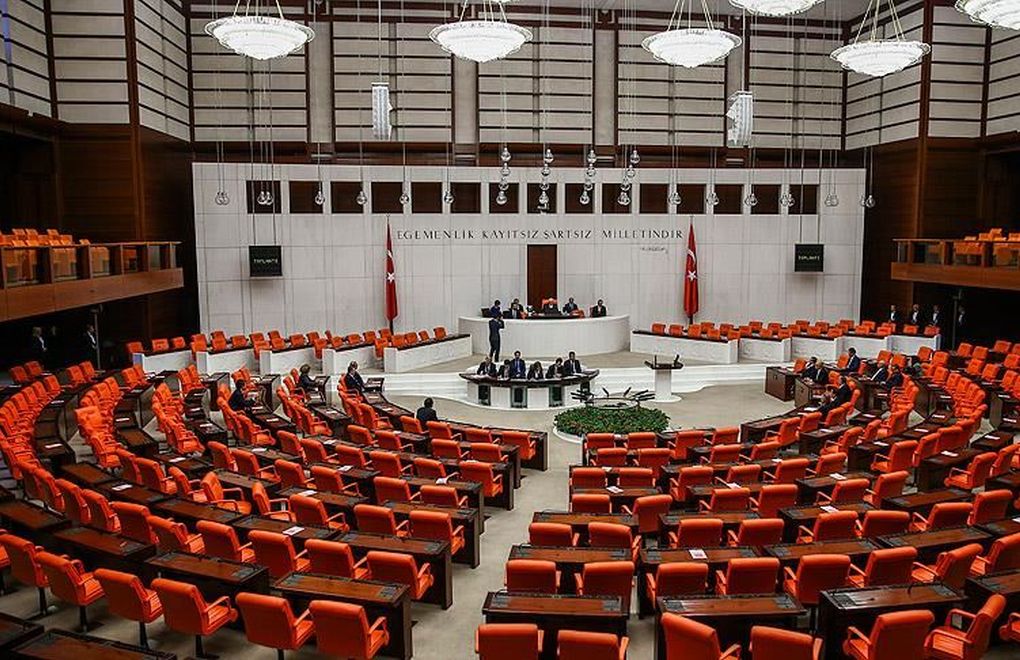“The spoils system politicians have created in bureaucracy and the appointment of inadequate persons to responsible positions have resulted in countless problems,” the Chamber of Mining Engineers said after an on-site examination.
The Chamber of Mining Engineers (MMO) has released the findings of its examination of Friday’s (October 14) coal mine explosion in Bartın, northern Türkiye, which claimed the lives of 41 workers.
A team of eight engineers both from the MMO headquarters and the MMO Zonguldak branch conducted an examination on the site in the Amasra district, as well as interviewing families of the mine workers, the chamber said.
The examination report points out the spoils system politicians have created in bureaucracy, the appointment of inadequate persons to responsible positions, and the inefficient and erroneous definition of authorities and responsibilities of engineers.
“It is observed in our examinations that there are numerous reasons for mining accidents, such as technical, social and economic reasons and education, planning and supervision problems.
“The spoils system politicians have created in bureaucracy, the appointment of inadequate persons to responsible positions and inefficient and erroneous definition of authorities and responsibilities of engineers have resulted in the countless problems listed above and unfortunately this disaster happened.”
Based on dialogues with the families and the examination held, MMO statement made the following points:
- There are a total of 722 employees in the Amasra coal mine facility, 500 of which are underground miners, 80 surface miners and 142 office-holders. Eighty-two workers were working in the 16:00 – 24:00 shift.
- There are two colliery parts in the mine, one in production and one in the preparation stage and both parts have been affected by the explosion. Details will be understood after examinations to be carried out.
- Authorities again tried to use the power transformer as a pretext, as in all mining accidents but when it was understood that it would not be convincing they had to accept that it was a firedamp explosion.
- A firedamp explosion occurs when coal gas has reached a critical level and sufficient oxygen meets with a source of flame.
- The causes of death have been burning due to the high temperature and shockwave resulting from the firedamp explosion and carbon monoxide intoxication.
- While the personnel of the facility was devotedly working for rescue, setbacks in crisis management above-ground caused a lack of communication of information to the families of the miners and uncertainties regarding the number of losses of life.
- Our Chamber was not able to reach the gas monitoring system data. It has to be examined if the coal gas sensor gave a warning signal at a critical level, which measures were taken if it has given a signal, and the reasons why if the sensor has not given a signal.
The MMO statement underlined that mining science had extensive knowledge in order to prevent coal gas explosions and made the following points and suggestions:
- Explaining the losses by fate or “the nature of work” instead of meeting the requirements as shown by science and technique makes us think that we will experience such losses again in the future.
- Public institutions such as this coal mine should be freed from all kinds of political pressure and managed according to mining operating rules.
- Emergency plans and risk maps should be prepared and implemented separately for each institution, each facility and each workplace in the mining sector.
- In coal districts with high coal gas density such as Zonguldak, Soma, Tunçbilek, the first coal gas discharge should be realized in the planning stage, free from economic concerns, as in the examples elsewhere in the world and the preparation and production stages should only follow after the region is made as free of coal gas as possible.
- Underground coal mining is a culture. This culture should be developed and preserved. Our public institutions in this sector should also serve as a school for occupational health and safety. These institutions should be made stronger for this purpose without any delay.
- It is a legal requirement that coal mining should be carried out accompanied by a mining engineer. This should be practiced in every shift by a sufficient number of mining engineers.
- Job security and occupational autonomy of permanent supervisors and occupational health and safety experts should be guaranteed.
- The mining engineers should be authorized to control and to instruct in mines.
- Training programs should be developed and realized for all employees so that they become aware of occupational health and safety regulations and possible risks.
- Legal and criminal responsibility for this accident should not be turned over to a number of our colleagues just like in earlier examples.
- Mining engineers are working in this sector which has a great contribution to Turkey’s economy, so the quality of their education should be accordingly. This education should be based on a scientific approach and scientific information and not on the requirements of the pursuit of the profit of the bosses.
- No one should put the blame on insufficient persons in management positions which resulted from interventions of politicians to bureaucracy on a number of our colleagues working in the field.
- Transparency in relation to all information regarding the accident is important for understanding the real cause of the accident. And identifying the real cause is important for such accidents not to repeat.
- The mining legislation should be modernized with humans and nature to be in its focus; national mining policies should be adopted for this purpose. Our Chamber is ready to cooperate with all public institutions so that we do not experience such disasters again. (RT/PE/VK)
m.bianet.org
